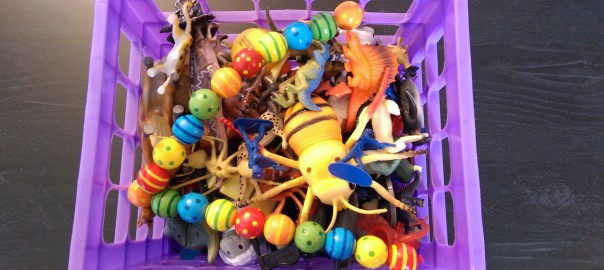At times, we all experience difficulty in expressing our emotions. It can be especailly challenging for children to express their emotions through words, so I encourage parents to think outside of the box about ways in which they can support their children in expressing their emotions.
In my Emotions! workshop, I use the following four part definition of express to help parents, caregivers and teachers gain insight into creative ways in which we can help our children express their emotions.
The dictionary defines express as:
- to put (thought) into words; utter or state
- to show, manifest, or reveal
- to set forth the opinions, feelings, etc., of (oneself), as in speaking, writing, or painting
- to represent by a symbol, character, figure, or formula
In the workshop, we use this definition as the foundation to discuss the following questions and topics:
1. Considering the above definition, in what ways do the children in your life express themselves in their daily lives?
2. How can you help children express their emotions by building on the forms of expression that come to them naturally?
3. In what ways can you support children in expressing their emotions though the following means:
- Writing
- Art
- Music
- Movement
- Verbal Communication
- Play
- And more?
I have a list of ideas for each of the above categories that I’ll share in an upcoming post, but I’d love to hear your suggestions in the comments below.

I think often we as parents think of only verbal communication when we think of expressing emotions. I love how you point out the multitude of ways children can express their emotions non-verbally!
Thanks for your comment, Natasha. Children are communicating with us non-verbally about so many things every day and I think it is important to think about how this applies to emotional expression, too.
As an ER nurse who often takes care of little ones, this is great info to have in my head!
Cynthia @craftoflaughter
I can’t wait to read the follow-up to this post. I have a 16 month old who feels her emotions very strongly and with very few words in her vocabulary, she is limited in her ability to express herself. I could use some tips!!!
Really great list. I noticed early on that writing is a great outlet for my son (just like with me). I think my younger son will be more of the movement type, but we’ll see.
Thanks for your comment. It is definitely true that each child is unique in terms of what is the best way to express and cope with emotions.
Nicole, thanks for your comment. I always say that it is never too early to start helping our children learn how to identify, share and cope with their emotions. It is great that you are mindful of where your 16 month old is at in this area. Here’s the link to the second post on this topic: https://sarahleitschuhcounseling.com/thinking-outside-of-the-box-creative-ways-to-help-children-express-their-emotions-part-2/ I also have other posts on my blog related to children and emotions which you may find helpful.
Cynthia, thank you for your comment. I imagine as an ER nurse you are encountering children that are very stressed, overwhelmed, confused, anxious and more. Trying to think outside of the box in your approach to these children may be very helpful. Thank you for the important work you do.
Thanks for your comment and the postive feedback, Alicia.
All too often we forget to “think outside of the box!” As adults we need to help children to remember that there are many appropriate ways they can express emotions. Great post!
Lori, Thanks for your comment. I think that some times it is hard for adults to think outside of the box related to emotions because we already know what is helpful for us when we need to express or cope with our emotions. But it is important to remember that what works for us may not work for our children.